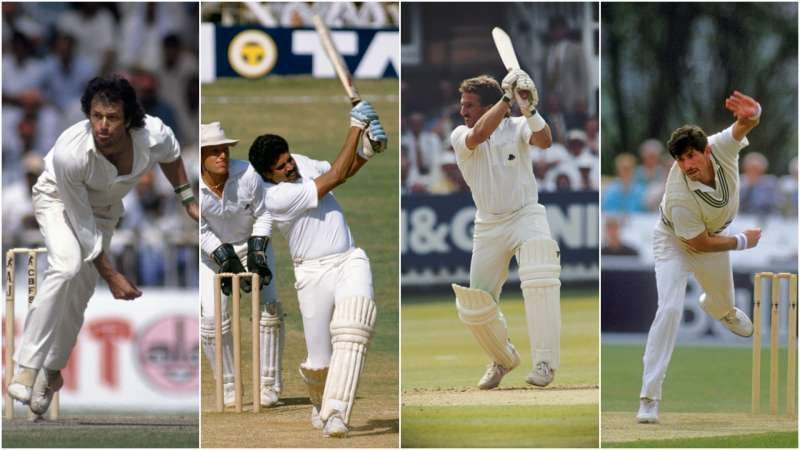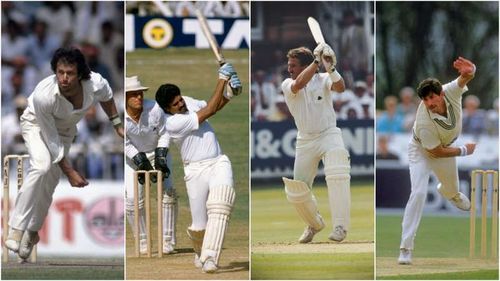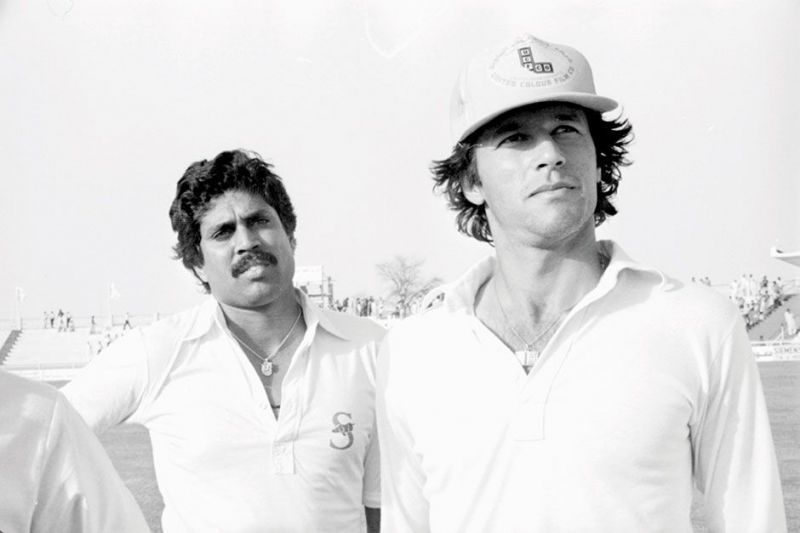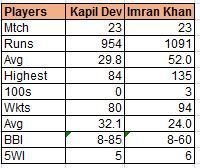
How the 4 great All-Rounders of the 80's fared against one another

Supremely talented and enormously confident, Rohan Kanhai and Garry Sobers were up against one another during West Indies' tour to Australia in 1960/61, to see who scored the most runs.
It is said that the competition got so stiff, both on and off the field, that Frank Worrell had to intervene and redirect their focus
Although emphasised a lot as a team sport, Cricket has always had space for individual brilliance which in turn has fostered competition within players from the same teams or across them.
In that respect, the game of cricket has never been as blessed as it was in the 1980s when there were four all-rounders jostling not only for being the best amongst themselves but also for a place in the all-time list.
But these cricketers were special, not only because of their stellar records but also because of their longevity (Each played more than 86 tests), there were great allrounders before them but no one (apart from Garry Sobers, who was in all fairness a batting all-rounder) played more than 63 tests (Richie Benaud).
Moreover, these four cricketers meant so much for their teams, that numbers in themselves would not be able to justify.
As India's first, and still the greatest, genuine fast bowler and a world cup winning captain; Kapil was the uncompromising, aggressive personality who paved the way for the modern Indian cricketer/s like Sehwag and Kohli.
Hadlee was New Zealand's greatest ever match winner whose exploits propelled the hopes of an entire nation. He was perhaps the only genuine international class cricketer in his team until Martin Crowe came along.
Imran Khan is, as Waqar Younis once said, the dictionary of Pakistan Cricket. Many of its greatest cricketers like Wasim Akram, Waqar himself, Abdul Qadir, Inzamam Ul Haq (to name a few) owe much of their success to him.
Ian Botham was the talisman who could single-handedly win matches, demonstrated no better than in the 1981 ashes where his magical performances with both bat and ball won England the series they were least expected to.
Botham's presence infused self-belief in a team that was overawed all too easily.
I have often come across statements made by these men where they admitted to keeping a watch on the other's performances, and elevating their respective games when playing against one another.
To what extent did they do the latter is what I intend to explore in the pages ahead
#1 Kapil Dev and Imran Khan

Imran Khan and Kapil dev played against one another in 23 test matches, most of them in the 1980s as it was perhaps the only decade when India and Pakistan did not fight a war with either weapons or words.
There is a telling difference in the batting records, where Imran towers over Dev, averaging 52 to Dev's 29.8 with three centuries compared to 0 for Dev.
Dev's below-par performances can partly be attributed to Pakistan having a better bowling line-up where Imran was supported by Sarfaraz Nawaz, Abdul Qadir, Wasim Akram and Waqar Younis.
Whereas Dev had to ply almost on his own with little or no quality support around, allowing Batsmen to play him with caution while scoring merrily against other bowlers.

On the bowling front, however, the comparison is less skewed. Although Deev took 14 fewer wickets than Khan, he more than held his own against a batting line-up that feasted on Indian bowlers like hungry sharks.
This was most evident during Pakistan's tour of India in 1980-81 when Kapil's 32 wickets gave India the series 2-0.
Dev was effective on Pakistani soil as well, his 8-85 in the Lahore test included a legendary opening spell where amongst one of his casualties was Majid Khan, who could barely put bat to ball and was famously dropped by Imran in the next test.
Khan, on the other hand, pulverized the Indians during their 1982-83 tour to Pakistan with a staggering 40 wickets in six tests.
Khan's record is magnified significantly by this performance. This just preceded the shin injury that kept him out of action for two years.